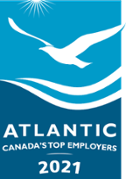The Institute of Biomedical Engineering at the University of New Brunswick (UNB) invites applications for a Tier 2 NSERC Canada Research Chair (CRC) in Rehabilitation Engineering. Physical mobility is an important component of quality of life. For those with reduced mobility, whether due to acute injury, neurological disorder, chronic disease, or general aging, rehabilitation can play a critical role in recovering independence. This area is accordingly a priority area of research for UNB, New Brunswick, and Canada.
Assistive and adaptive technologies can play an important role both during rehabilitation and afterwards, to support community reintegration and independence. Increasingly, robotics, sensors, AI, and other technologies that can integrate with our lifestyles have increasing potential to significantly improve accessibility and outcomes. Priority areas of research within this field may include, assistive and rehabilitation robotics, biomechanics, smart textiles and sensors, wearable and IoT technologies, machine learning and AI, augmented feedback, virtual rehabilitation, and more.
UNB is committed to fostering diversity within our community and developing an inclusive workplace that reflects the richness of the broader community that we serve. This position will uphold UNB's commitment to increasing the representation of under-represented groups among its chairholders. Therefore, only applicants who self-identify as members of gender equity deserving groups (including cisgender women, transgender women, transgender men, two-spirit, and non-binary) and/or as racialized individuals will be considered for this opportunity. We encourage those with intersecting identities to apply (for example, women who also identify as racialized individuals, Indigenous, and/or as persons with disability).
The successful candidate may be appointed at the rank of Assistant or Associate Professor with Tenure, if qualifications and experience warrant. The appointment will be in an appropriate department within the Faculty of Engineering. Salary will be commensurate with qualifications and experience. Per UNB requirements, the successful candidate will hold a PhD or equivalent in Engineering or a related discipline and will be eligible and willing to become a registered Professional Engineer in a Canadian jurisdiction. UNB will nominate the selected candidate for the Tier 2 CRC in Rehabilitation Engineering and support their application. The offer of an appointment is conditional upon the candidate being awarded a Canada Research Chair. The anticipated start date of the appointment is July 1, 2024, or as negotiated.
Tier 2 chairs are intended for exceptional emerging scholars (i.e., candidates must have been active researchers in their field for fewer than 10 years at the time of nomination), acknowledged by their peers as having the potential to lead in their field. Potential applicants who are more than 10 years from having earned their highest degree, and where career breaks exist, such as maternity, parental or extended sick leave, clinical training, etc., and/or where applicable exceptional circumstances are present, may have their eligibility for a Tier 2 chair assessed through the CRC Program's Tier 2 justification process. Please contact Heidi Van Wart at crc@unb.ca for more information.
The successful candidate will bring a track record in rehabilitation engineering that shows the potential for global impact. The assessment of candidates will be based on research excellence as reflected in the quality and impact of Declaration on Research Assessment (DORA) outputs. DORA outputs include, but are not limited to, published journal articles, article preprints, datasets, software, protocols, well-trained researchers, societal outcomes, and policy changes resulting from research. In addition, the successful candidate must show potential to successfully teach and mentor, and to attract, develop, and retain trainees, students, and future researchers.
The University of New Brunswick recognizes and respectfully acknowledges that UNB stands on the unsurrendered and unceded traditional Wolastoqey land. The lands of Wabanaki people are recognized in a series of Peace and Friendship Treaties to establish an ongoing relationship of peace, friendship, and mutual respect between equal nations.
UNB is a small comprehensive university with a long history of excellence in teaching and research and a large emphasis on biomedical engineering. UNB's Institute of Biomedical Engineering (IBME) is world-renowned for their accomplishments in myoelectric prosthesis control, and over the last thirty years, the university has enjoyed substantial investment and growth in the broader rehabilitation sector. IBME recently built the Centre for Adaptive Rehabilitation Engineering (CARE) - a state-of-the-art facility that blends assistive robotics, virtual reality, and activities of daily living. IBME is a small collaborative team of core and affiliated faculty members that have historically come from a variety of departments including Electrical and Computer Engineering, Mechanical Engineering, and Kinesiology. We typically supervise 20-30 graduate students and have graduated over 160 graduate students, a large percentage of whom are now leading Canada's biomedical research at universities across the country.
IBME and the Faculty of Engineering are both located on UNB's Fredericton campus - the capital city of New Brunswick - providing the amenities of a large city and the charm of a small town. Situated along the banks of the beautiful and bountiful Wolastoq river, a region recognized worldwide for its natural beauty, Fredericton offers a rare opportunity for academics to do world-class research in a supportive, beautiful environment. Faculty can afford to live downtown or in forested rural communities that enjoy only a 15-minute commute, making it easy to engage in research, outdoor activities, and social activities. An extensive network of multiuse trails and a vibrant network of community and multicultural organizations provide the opportunity for a balanced life in which both research and community engagement thrive. Rated Canada's #2 city to live in, Fredericton's affordable tech-savvy, nature-infused environment is the ideal place to live and has played a significant role in attracting such a grounded, team-oriented group of world-leading researchers.
UNB ensures that employment opportunities are accessible to all applicants. To request accommodations at any stage in the recruitment and hiring process, please contact UNB's Recruitment & Employee Experience Specialist at 506-453-4648 or people@unb.ca.
UNB recognizes the legitimate impact that leaves (e.g., parental, illness) can have on a candidate's record of research achievement. Leaves will be taken into careful consideration during the assessment process.
Please consult the Canada Research Chairs website or full program information, including further details on eligibility criteria.
Applicants are requested to supply a current CV including a list of DORA outputs, statements describing previous performance in research, teaching and supervision, and a statement identifying strengths and experiences related to equity, diversity, and inclusion in their current and previous institutional environments. All qualified people are encouraged to apply; however, per Canadian Immigration requirements, please specify if you are legally entitled to work in Canada. Names and contact details of at least three references should also be sent. Applications should be sent to:
Institute of Biomedical Engineering
University of New Brunswick
C/o Christine Ritchie
25 Dineen Drive, PO Box 4400
Fredericton, New Brunswick
Canada E3B 5A3
E-mail: IBME-CRC@unb.ca
Short-listed candidates will be required to provide satisfactory proof of credentials including appropriately certified translations of credentials into English, as applicable.
The University of New Brunswick is committed to fostering diversity within our community and developing an inclusive workplace that reflects the richness of the broader community that we serve. The University welcomes and encourages applications from all candidates who will help us achieve our goals, including women, visible minorities, Indigenous peoples, persons with disabilities, persons of any sexual orientation, gender identity or gender expression. We recognize that career paths are not always linear, particularly for individuals from marginalized groups, and we encourage applicants to explain the impact any career interruptions may have had on their research history. Preference will be given to Canadian citizens and permanent residents of Canada.


